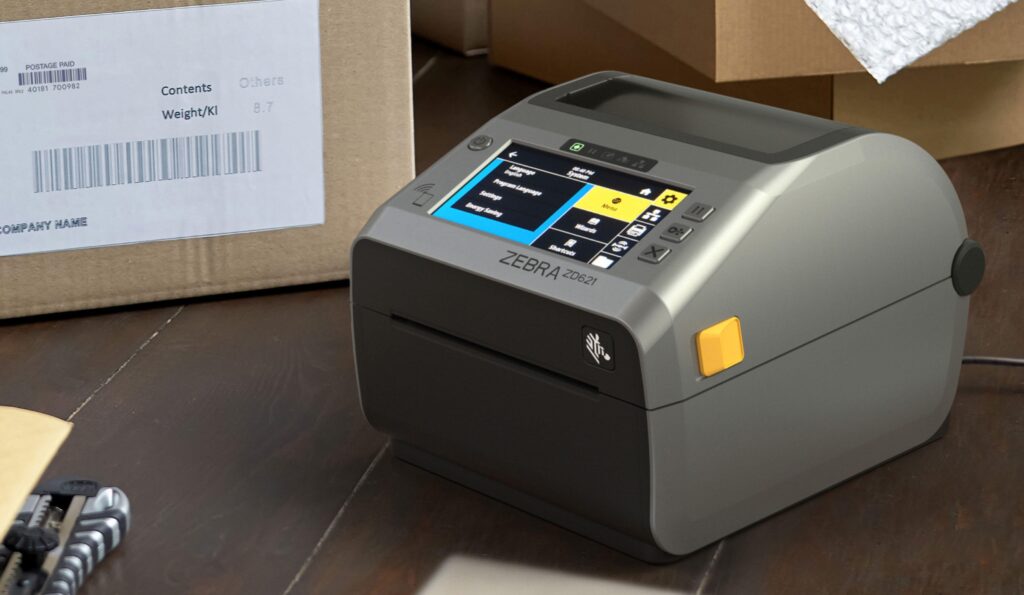25
Oct
The Ultimate Guide to Labeling Printers: Choosing the Right Solution for Your Business

Labeling printers are essential tools for businesses across various industries, from retail and manufacturing to healthcare and logistics. They enable efficient printing of product labels, shipping labels, barcodes, and more, making business operations smoother and more organized. Whether you need a high-performance industrial label printer or a compact desktop model, finding the right labeling solution can make a significant difference in productivity and accuracy.
In this guide, we will explore everything you need to know about labeling printers, including the types of printers available, key features to look for, and the benefits they offer businesses. We’ll also highlight SEO-friendly terms like “best label printers,” “barcode labeling printer,” and “label printing solutions” to help businesses searching for the right equipment online.
What is a Labeling Printer?
A labeling printer is a specialized device designed to print labels that are applied to products, packages, or documents. These labels can include essential information such as product names, barcodes, expiration dates, and shipping details. Labeling printers are commonly used in retail, logistics, manufacturing, and healthcare industries where efficient labeling is crucial for inventory management, product identification, and regulatory compliance.
Label printers differ from standard office printers in that they are specifically designed to print on adhesive labels, tags, and other specialty materials. They often offer features like barcode printing, high-speed printing, and compatibility with label design software, making them indispensable tools for businesses with labeling needs.
Types of Labeling Printers
There are several types of labeling printers available, each suited for different business applications. Let’s take a closer look at the most common types:
1. Desktop Label Printers
Desktop label printers are compact, easy-to-use devices that are perfect for small to medium-sized businesses. They are ideal for printing shipping labels, product tags, barcodes, and address labels. Desktop printers are typically connected to a computer and used in environments where moderate volumes of labels are printed.
Example: The Zebra ZD410 Desktop Label Printer is a popular choice for businesses needing high-quality, durable labels in retail and healthcare settings.
2. Industrial Label Printers
Industrial label printers are designed for high-volume printing in demanding environments like factories, warehouses, and distribution centers. These printers are known for their durability, speed, and ability to handle larger label sizes and more frequent printing. They can print labels continuously for extended periods, making them ideal for businesses with high production demands.
Example: The Toshiba B-EX6T3 Industrial Label Printer is perfect for industries requiring rugged performance and high-speed printing of large labels.
3. Mobile Label Printers
Mobile label printers are portable devices that allow users to print labels on the go. These printers are commonly used in industries like logistics, retail, and field service, where employees need to print labels at various locations. Mobile printers often connect to smartphones, tablets, or handheld computers via Bluetooth or Wi-Fi, ensuring flexibility and convenience.
Example: The Zebra ZQ600 Plus Series Mobile Printer offers wireless printing and is ideal for mobile workforces who need reliable, on-the-spot label printing.
4. Thermal Label Printers
Thermal label printers use heat to print labels, eliminating the need for ink or toner. There are two types of thermal printers: direct thermal and thermal transfer. Direct thermal printers use heat-sensitive paper that darkens when heated, making them ideal for short-term labeling needs, such as shipping labels. Thermal transfer printers, on the other hand, use a ribbon to transfer ink onto the label, creating durable and long-lasting prints.
Example: The Honeywell PM45 Thermal Printer is an excellent choice for businesses that require durable labels for harsh environments.
Key Features to Consider When Choosing a Labeling Printer
When selecting the best labeling printer for your business, there are several important factors to consider:
1. Print Speed
For businesses with high-volume labeling needs, print speed is a critical factor. Industrial label printers tend to offer higher speeds compared to desktop models, which is important for businesses that require fast and efficient label production.
2. Label Size Compatibility
Different businesses require different label sizes. For instance, logistics companies may need large shipping labels, while retail businesses might need smaller product labels or price tags. Ensure the labeling printer you choose can accommodate the label sizes required for your business.
3. Print Resolution
Print resolution refers to the quality of the print, usually measured in dots per inch (DPI). Higher DPI translates to clearer and sharper labels, which is especially important for printing barcodes and small text. If your business requires highly detailed labels, opt for a labeling printer with high resolution.
4. Durability and Reliability
If your business operates in a demanding environment, such as a warehouse or factory, you’ll need a rugged, industrial-grade printer that can withstand dust, temperature fluctuations, and heavy usage. Look for printers that are built for durability and long-term reliability.
5. Connectivity Options
Labeling printers should be compatible with the devices you use. Look for models that offer a variety of connectivity options, such as USB, Ethernet, Bluetooth, and Wi-Fi. Wireless connectivity is especially important for mobile label printers, allowing users to print from various locations without being tethered to a computer.
6. Software Compatibility
Many labeling printers come with design software that allows users to create custom labels, add barcodes, and manage print jobs. Ensure that the printer you choose is compatible with the label design software you use, or offers its own comprehensive software solution.
Benefits of Using Labeling Printers for Businesses
Labeling printers provide several advantages for businesses across different industries:
1. Improved Efficiency
With a labeling printer, businesses can produce labels quickly and efficiently, reducing downtime and ensuring that products, packages, or documents are labeled accurately and on time.
2. Enhanced Accuracy
Whether you’re printing barcode labels for inventory management or shipping labels for logistics, labeling printers help reduce human error. Accurate labeling ensures that products are tracked properly, inventory is managed efficiently, and packages are delivered to the correct destinations.
3. Cost-Effective Solution
Investing in a labeling printer can save businesses money in the long run. By printing labels in-house, businesses can avoid the costs associated with outsourcing label production. Additionally, thermal label printers eliminate the need for expensive ink or toner, reducing operational costs.
4. Customization Options
Labeling printers offer businesses the flexibility to customize their labels with logos, barcodes, text, and graphics. This level of customization is essential for branding and for meeting industry-specific labeling requirements, such as product safety information or regulatory compliance.
Conclusion
Labeling printers are invaluable tools for businesses looking to streamline operations, improve accuracy, and increase efficiency. Whether you need a compact desktop printer for product labeling or a rugged industrial model for high-volume printing, there’s a labeling printer suited to your business’s needs. By choosing the right labeling printer, your business can enhance its productivity, save costs, and ensure that every label is printed with precision.
When selecting a labeling printer, consider your business’s volume, label size requirements, and the environment in which the printer will be used. With options ranging from mobile printers to industrial-grade solutions, businesses can find the perfect labeling printer to suit their unique needs.
